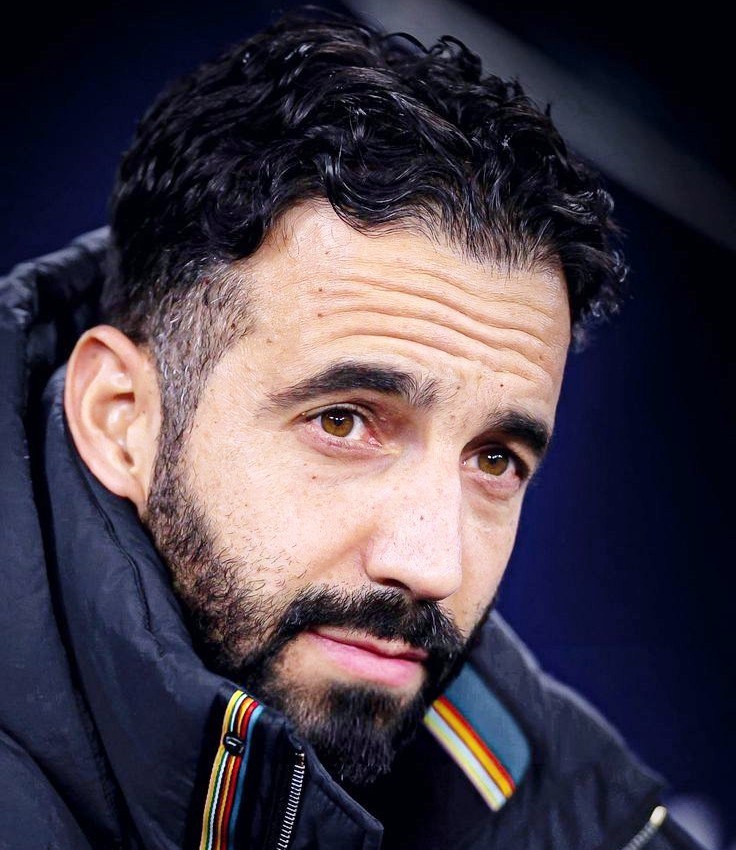
After Manchester United’s devastating loss to fourth-tier Grimsby Town in the second round of the Carabao Cup, head coach Ruben Amorim apologized to the supporters and acknowledged the club’s long-standing problems. After Grimsby took a 2-0 lead at the interval, United rallied with goals from Harry Maguire and Bryan Mbeumo to force a spot shootout, which United lost 12–11.
Amorim did not hold back when he said that “something has to change”—though it was not the team of 22 players that needed to be replaced—citing a concerning lack of ambition and effort among his players. He even went so far as to call the performance “unacceptable,” citing persistent systemic issues that have existed since United’s disappointing 15th-place result in the previous Premier League season.
He went on to say that United had finished second that evening, which was an especially harsh assessment considering the fourth-division opponents they faced. Even though goalie André Onana was initially involved in giving up both of Grimsby’s goals, Amorim insisted that “it is not the goalkeeper, it is everything”—highlighting problems with the club’s atmosphere, mindset, and strategy.
English Premier League Embraces AI In New Microsoft Partnership
Amorim presented this result as a potential turning point because United had not won this season and stated that he would use the next international break to think things through and reorganize.
Unpacking His Remarks:
Ruben Amorim may be pointing to when he says “something has to change” at Manchester United, but not the players. Based on his post-match comments and the wider context, these are the most likely areas:
- Club Culture & Mentality
United have often been criticized for lacking the hunger, discipline, and winning mentality that defined the Sir Alex Ferguson era.
Amorim hinted that his players lacked desire against Grimsby — suggesting that changing the internal culture, standards, and accountability is more important than replacing individuals.
- Leadership & Structure
Since the Glazers’ takeover, United have been accused of prioritizing commercial success over footballing excellence.
Amorim may be signaling that the boardroom and football operations need to align around long-term sporting goals instead of short-term results.
- Tactical Identity
United have shifted through multiple managers and philosophies (counter-attack under Ole, possession under Ten Hag, now Amorim’s pressing style).
Amorim could be saying that consistency in tactical identity, player roles, and style of play must be built — not torn apart with every bad result.
- Player Development & Commitment
Rather than buying new squads every summer, United may need to better develop what they already have.
Amorim’s Sporting Lisbon teams thrived on maximizing talent, discipline, and unity — he may want to instill the same at Old Trafford.
- Backroom & Support Systems
United’s scouting, recruitment, and analytics have long been criticized.
A modernized support system — medical, fitness, psychological — could be part of the “change” Amorim means.
Amorim is calling for a shift in mentality, structure, and philosophy rather than another mass clear-out of players. He seems to believe the system around the players is broken, not necessarily the squad itself.





